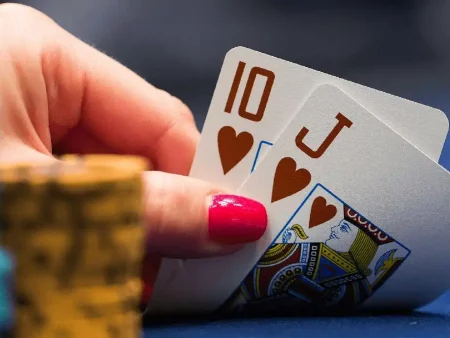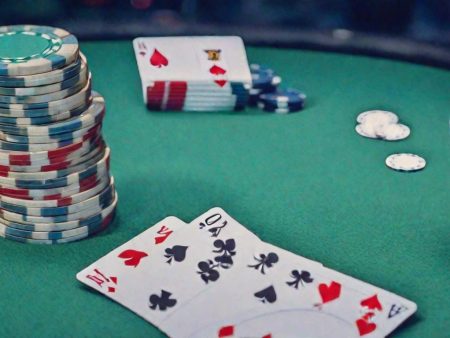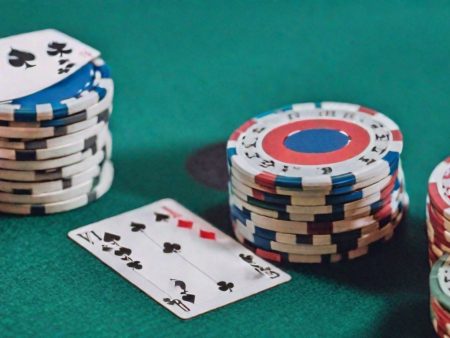In poker, novice players often struggle with making decisions during betting rounds. They frequently overlook crucial factors such as their position at the table, the odds of the pot, the remaining cards in the deck, and the hands their opponents may hold. One strategy that can help in these situations is the “Calling” tactic, which involves matching an opponent’s bet after they raise. This move is simple and does not require advanced calculations. By calling, players can remain in the game without showing aggression or revealing the strength of their hand. In some cases, calling is the final action in a betting round.
For beginners, learning how to call effectively is key. A wise call means only matching bets when it’s truly justified, which can boost winnings, protect your bankroll, and minimize losses. There are certain scenarios where calling is a smart move.
Understanding the Technique
The term “call” in poker originates from the English language, meaning to “challenge.” Another term players might encounter is “entry,” which signifies the act of matching an opponent’s bet, effectively “entering” the game at that point in the betting round. It’s also beneficial to familiarize oneself with poker terminology when evaluating online casinos. A “call” in poker refers to matching a bet without raising it. When a player places a bet, they commit the big blind or a set amount according to the rules. Other players must then call, matching the same amount of chips into the pot.
The Process of Calling
A player calls by either matching an initial bet or calling a raise. If a player places a bet and others choose to increase the bet (raise), the bidding continues until only the original bettor remains. That player then has to either call or fold their cards, which can be done through a mobile online casino or the official website. Calling a big blind from an early position doesn’t always mean the player will stay in the game. Multiple raises or even an all-in bet could occur before the current round concludes.
Read also: What is a bub in poker.
While calling is a common action in poker, it isn’t always the best choice. Calling with a weak hand, especially when there are multiple opponents, is typically unwise. Strong hands or “nuts” can be called, but it’s best to raise after the river to reduce the number of competitors and improve your chances of winning the pot.
The Essentials of a Smart Call
To make a good call in poker, players need to consider several key factors in different situations. Calling allows players to stay in the game without revealing their cards, providing an opportunity to see the next community card without committing large sums of money. It’s important to understand table position and the strength of your hand. Players in later positions can gain insights into their opponents’ actions, which can inform their decision-making. Also, it’s crucial to evaluate the size of the bet and the probability that the hand will improve on future streets.
Different situations may call for different calling strategies. For example, if a player has a strong hand, they might call a bet to avoid scaring their opponent and increase the pot size for the next round. Conversely, calling with a weak hand in a large pot can lead to significant losses. However, calling isn’t always safe. Poor decisions can result in substantial losses. Therefore, it’s important for players to develop the skill of reading the game and their opponents to make well-informed decisions.
Calling Effectively in Texas Hold’em
In poker, the ability to react appropriately and call at the right moment is often a crucial skill. Alternative options should always be considered. If a player has a weak starting hand, folding is usually the best choice to avoid losses. On the other hand, with a strong hand or a promising draw, raising the bet is a good way to build the pot and pressure opponents. In such cases, players may also consider increasing their bet. A successful call often requires knowing when to equalize bets and when to raise.
Challenging Game Scenarios
When two or three players limp into the betting round, it creates a chance to play speculative hands profitably. In this scenario, raising may not be the best option. To participate effectively in a multi-player pot without raising, a player should ideally be in a late position at the table.
Strong Draws and Improvements
If a player has a drawing hand, they may consider calling. For example, with a flush or straight draw, players can call the bet to see the next card. However, it’s essential to assess the probability of improving the hand before deciding if a call is worth the cost. If you have a strong draw, a more advanced tactic, the call-raise, can be used. This strategy is effective when the player has a powerful starting hand, such as aces, kings, or a pair of cards. If the player is in an early position with a big blind, and an aggressive opponent raises, it might be wise to raise or go all-in.
Read also: What is a bad beat in poker?
Rational Decisions in Tournament Play
The Independent Chip Model (ICM) is a mathematical model that helps players convert chips into actual money. It’s particularly useful for determining when to fold and when to go all-in with certain hands. ICM assists in calculating the risk versus reward of a given hand. Sometimes, it’s better not to participate in a hand, based on the potential rewards.
Specialized tools, like Holdem Resources, ICMIZER, and ICM Trainer, are excellent for making informed decisions. These programs analyze thousands of hands to help players determine the optimal bet or call based on average values and card ranges.
Related Strategies
To call effectively, players should know the various strategies available. These include:
- Cold-Call: This strategy involves calling an opponent’s raise from a favorable position, allowing the player to win the pot in the following round.
- Flat-Call: This technique is used to disguise a strong hand or “nut.” Flat-calling helps build the pot for the next rounds, maximizing potential winnings. It’s best used when the player is in a late position, and the opponent is forced to make the first move.
- Check-Call: This involves calling an opponent’s raise from an early position, aiming to win the pot in the next round. This technique is most effective when you have a strong hand and anticipate that your opponent will fold if you raise.
Common Mistakes Made by Beginners
Beginners often make mistakes when calling their opponent’s bets. It’s essential to use this technique only when justified. A call made in error can result in a multi-way pot, with more than two players involved. Calling from an early position is particularly risky, as opponents will raise, forcing the player to either fold or re-raise. Here are some common mistakes beginners make:
- Weak hand in the big blind: It’s usually better to lose the mandatory bets than to spend extra chips on weak hands.
- Attempting to call a bluff: If an opponent has won multiple times with weak hands, it doesn’t guarantee they’re bluffing. Only call big raises if you have a strong hand or a good draw.
- Weak hand on the river: If the community cards have not improved your hand, there’s no need to continue betting. It’s wiser to fold and avoid unnecessary losses.
Calling can lead to losses if a player calls after the flop, especially if they had previously raised. In such cases, a re-raise might be a more effective move to show strength and pressure opponents into folding. In conclusion, if you’re looking for a casino with a deposit of $10 or more, follow this link for more information about the gambling industry. Want to know more about how to win at casinos? Read secrets of successful casino gaming – top players share their insights!
FAQ: What is a call in poker and when is it profitable to make it
What is a call in poker?
A call in poker is a betting action where you match the current bet made by another player. Essentially, you are agreeing to continue in the hand by placing an amount equal to the bet, without raising it. Calling allows you to stay in the game and see the next card or reach the showdown, depending on the stage of the hand.
When should I call in poker?
You should consider calling in situations where you have a hand strong enough to continue, but not strong enough to raise. Calling is often used to see additional cards, especially when you have a drawing hand, such as a flush or straight draw, and the pot odds justify continuing. It’s also a useful strategy when you believe your opponent’s hand is weaker, or you want to keep the pot small in certain situations.
How do pot odds affect my decision to call in poker?
Pot odds are a key factor in deciding whether to call. Pot odds refer to the ratio of the current size of the pot to the cost of a contemplated call. If the potential reward (the size of the pot) is larger than the cost of your call, it may be profitable to continue. A general rule is to call when your odds of completing a hand are greater than or equal to the pot odds you're being offered. For example, if you need to hit a draw and the pot odds are favorable, calling may be the correct move.
When is calling a mistake in poker?
Calling can be a mistake when you are drawing to a hand that has very low odds of winning, or when the pot odds don’t justify continuing. Additionally, if your opponent is betting large amounts and you don’t have a strong enough hand to compete, it might be better to fold rather than throw more chips into the pot with a weak hand. Over-calling in situations where you’re unlikely to improve your hand can lead to significant losses.
Can I call as a bluff in poker?
Yes, calling can be part of a bluffing strategy, particularly if you are trying to deceive your opponents into thinking you have a stronger hand than you do. By calling instead of raising, you might encourage your opponent to overestimate the strength of their hand and make a mistake. However, calling as a bluff requires careful timing and an understanding of your opponent’s tendencies, as it can backfire if done recklessly.
How does position affect whether I should call in poker?
Position is crucial when deciding to call. Players who act later in a hand (those who are "in position") have more information about the actions of others, making calling more attractive in certain situations. If you're in an early position and a player before you has made a substantial bet, calling may be risky, especially with a marginal hand. On the other hand, calling from a later position might allow you to make a more informed decision based on the actions of others.
What are the advantages of calling in poker?
Calling provides a lower-risk way to continue in a hand, especially when you're unsure about the strength of your hand. It allows you to see the next card or reach the showdown without committing too many chips. Calling can also be useful when you're in a situation where you have a drawing hand and need to see additional cards to complete it. Additionally, calling can help you avoid raising too early and scaring off your opponents if you're uncertain about your hand.






